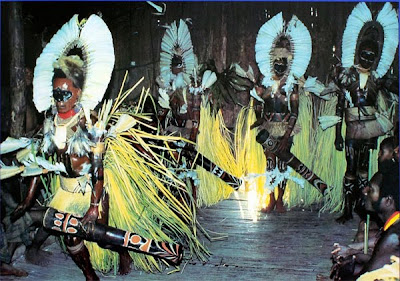
Indisk Konstmusik - Gammal tradition i en ny värld
(Indian art-music - Old Tradition in a New World)
Caprice - CAP 2022 - P.1987
Prof. Debu Chaudhuri, sitar
Side A
A1 Raga Bagesri 21'30
A2 Raga Maund 7'55
A1, A2 recorded in the home of Debu Chaudhuri, New Delhi, 87.01.28
recorded 23 years ago on the day!
Dr. S. Balachander, veena
Side B
B1 Raga Varali - Ne pogoda kunte - Thyagaraja 28'45
B1 recorded in Bani Center, Madras 87.01.03
Pandit Bhimsen Joshi, vocal
Side C
C1 Raga Todi - Aaj more mana logo langarawa - Khayal 14'59
C2 Raga Bhairavi - Thumri 12'32
C1, C2 recorded in the home of Bhimsen Joshi, Poona 87.02.06
recorded on his 65'th Birthday!
Pandit Hariprasad Chaurasia, flute
Side D
D1 Hariprasad Chaurasia - Raga Mishra Khamaj - 12'46
Pandit Shivkumar Sharma, santur
D2 Pandit Shivkumar Sharma - Raga Chandrakauns 12'50
D1 recorded in the home of Hariprasad Chaurasia, Bombay 87.02.03
D2 recorded in the home of Shivkumar Sharma, Bombay 87.02.03
This is the final memorial post of Bhimsen Joshi for at least a week or so. Not because I ran out of records to post but we really should not have so much of the best at the same time.
The good friend Arvind reported in at the last moment with these reading fruits from studying obituaries to Bhimsen Joshi the whole day.
He writes:
This one by Deepa Ganesh in The Hindu I found most interesting. Though its short, there is a considerable amount of insight, into the man and his music, and many good anecdotes. I think she tells the story (which will now enter legend) of how the young Bhimsen ran away from home and ultimately found his way to Sawai Gandharva and the Kirana gharana, in a very interesting way:
A wanderer both in life and in music, Bhimsen would often go missing from home, to his parents' great worry. From the age of three, he was wont to wander off — following the muezzin's prayer of Allahu Akbar as he tried to grasp its notes, or listening to the musicians in a nearby temple. As if in a trance, the little child would follow bhajan mandalis and wedding processions, completely tuned to musical notes and switched off to all else. His father would often lodge complaints with the police, only to find that a Good Samaritan had brought the boy back home. However, at 11, the boy left home for good after quarrelling with his mother, because she could not afford to serve him ghee with rice. He stomped out, leaving his food untouched. This turned out to be the turning point in his musical journey too. Listening to the gramophone recording of Raga Jhinjoti sung by the maestro of the Kirana Gharana, Ustad Abdul Karim Khan, in a nearby teashop, he set his heart on learning from him. He stood at the Gadag station and took a train heading north. The penniless lad gave ticket collectors the slip by moving between compartments, singing songs for fellow passengers and begging for food. He stopped at Pune, Bombay and finally, after three months, reached Gwalior. He met and learnt from various maestros, but was not satisfied. He then went from Kharagpur to Calcutta, and on to Delhi, finally reached Jalandhar, where the Gwalior maestro, Vinayak Rao Patwardhan, advised him to learn from Sawai Gandharv in Kundagol, Karnataka. - It continues here
These recordings were made in connection with the India Festival '87, a comprehensive presentation of Indian Culture in Sweden in 1987. Bhimsen Joshi held several concerts in Stockholm and I was fortunateley able to attended all of them. Unfortunately I have not been able to locate any recording from these concerts but maybe if we are lucky, someone sees this post and points me to some location where I can search. Better yet, someone has a recording and shares it with us! There are indeed other very well known artists on this record , and I may come back later with individual post of the these artists but the reason I don't dwell upon them is because my main reason to post this double LP is because of the C-side with Bhimsen Joshi recordings. Again we can thank my good friend his Excellency who kept this record away from the dents of time. The recording with Debu Chaudhuri is made in his home in Bombay 23 years ago on the day! The recording of Bhimsen Joshi is made on the 6th of February in 1987, in his home in Poona, and on his 65th birthday! In little more than a week, that is 23 years ago!




















































